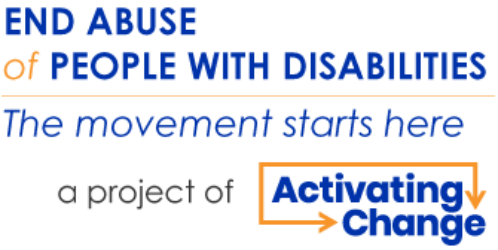People with disabilities and Deaf people experience violent crime at three times the rate of people without disabilities, yet healing services and the legal system are often not accessible to them. There are a number of steps agencies can take to make their services more accessible and welcoming for survivors with disabilities and Deaf victims, including asking every victim if they need accommodations to participate in services or the legal system.
Just Ask: A Toolkit to Help Advocates, Attorneys, and Law Enforcement Meet the Needs of Crime Victims with Disabilities was created in response to conversations with professionals working with survivors, many of whom are open to asking about accommodations, but don’t know how and are worried about saying the wrong thing. The toolkit lays out four simple steps for providing accommodations to survivors with disabilities, and includes sample language you can use when talking to survivors. It also outlines what your agency needs to have in place for staff to be able to provide accommodations as soon as survivors request them.
What’s Available
Just Ask is comprised of three audience-specific toolkits:
Asking about Accommodations: An Introduction
Acknowledgements
This toolkit was shaped by people with disabilities and disability advocates. Vera would like to thank Max Barrows, Leigh Ann Davis, Jasmine D’Addario-Fobian, Roberta Eaton, Suzanne Hopkins, Jo Johnson, Keith Jones, Shell Schwartz, and Olga Trujillo for their insights and contributions as Expert Workgroup Members for the National Resource Center on Reaching Victims. Nancy Smith and Katie Allen with the Vera Institute of Justice were also instrumental in developing this toolkit.
A Note About Language
The terms victim and survivor are used interchangeably throughout this toolkit, based on the different ways in which people who have experienced crime identify. When working with people whose lives have been touched by crime, best practice is to reflect the language they use to identify themselves.
